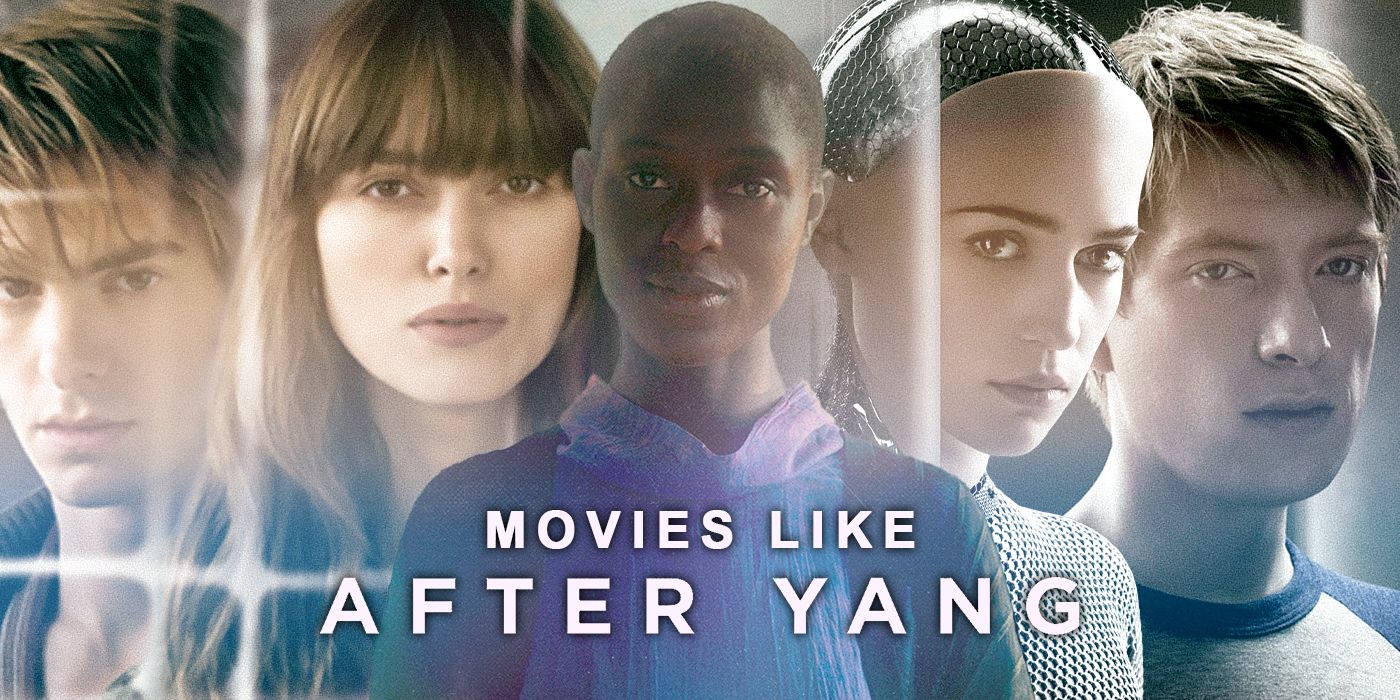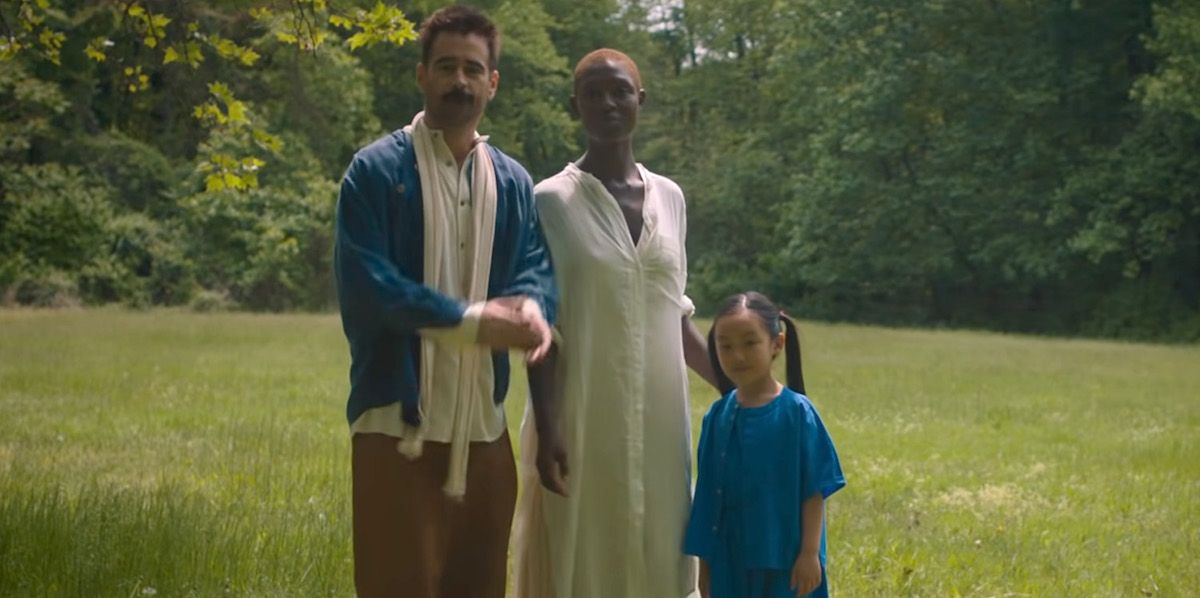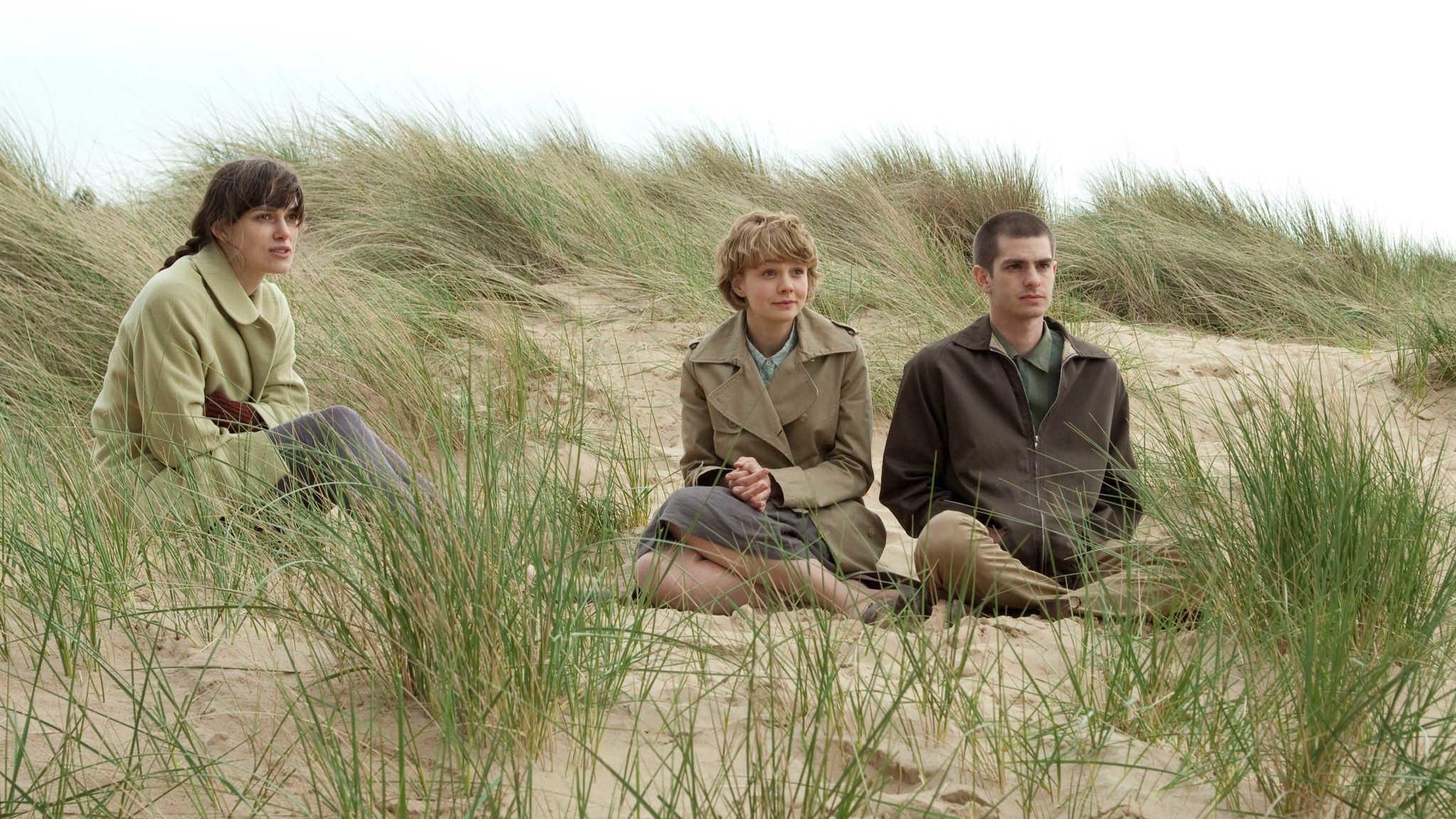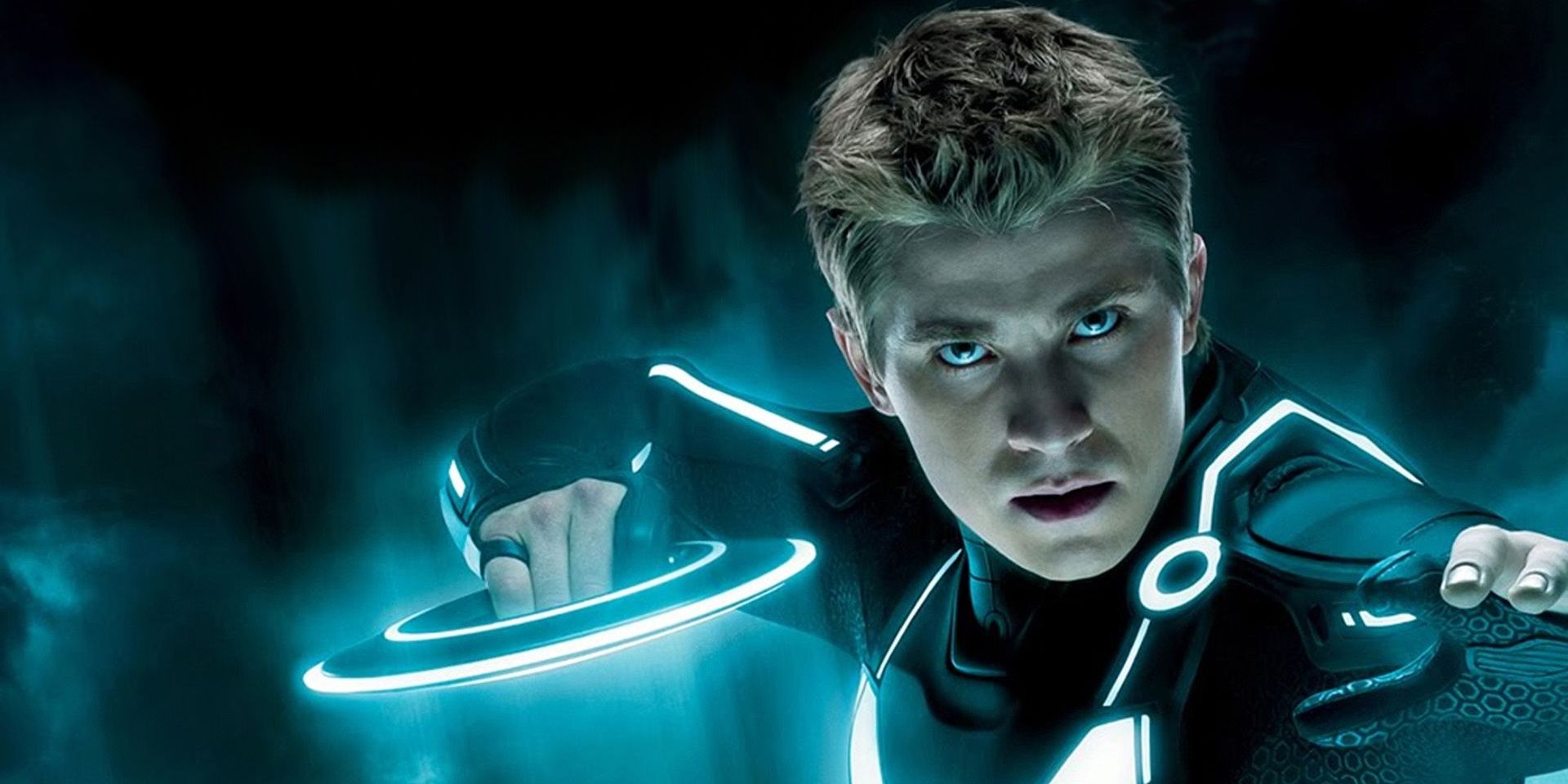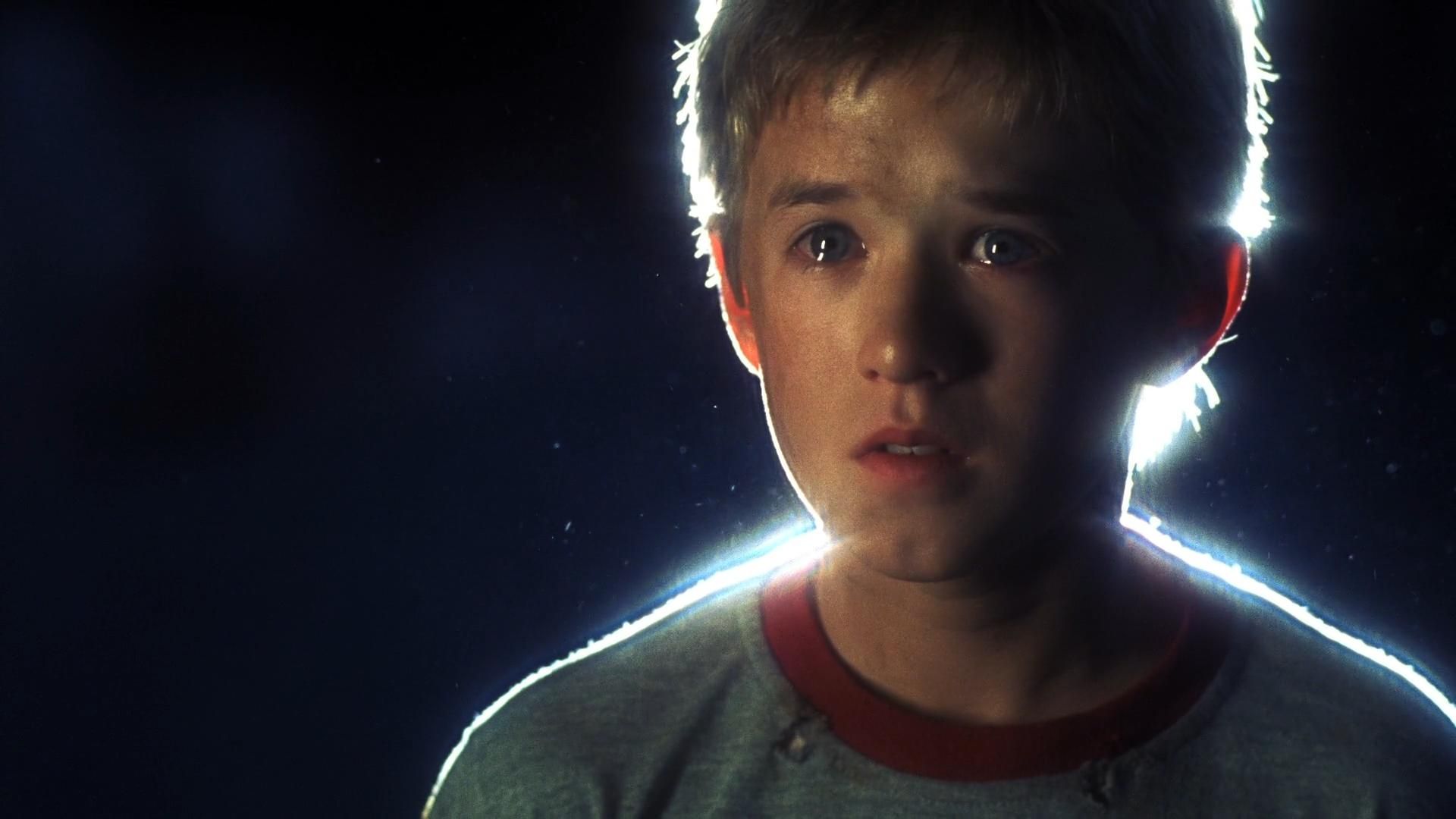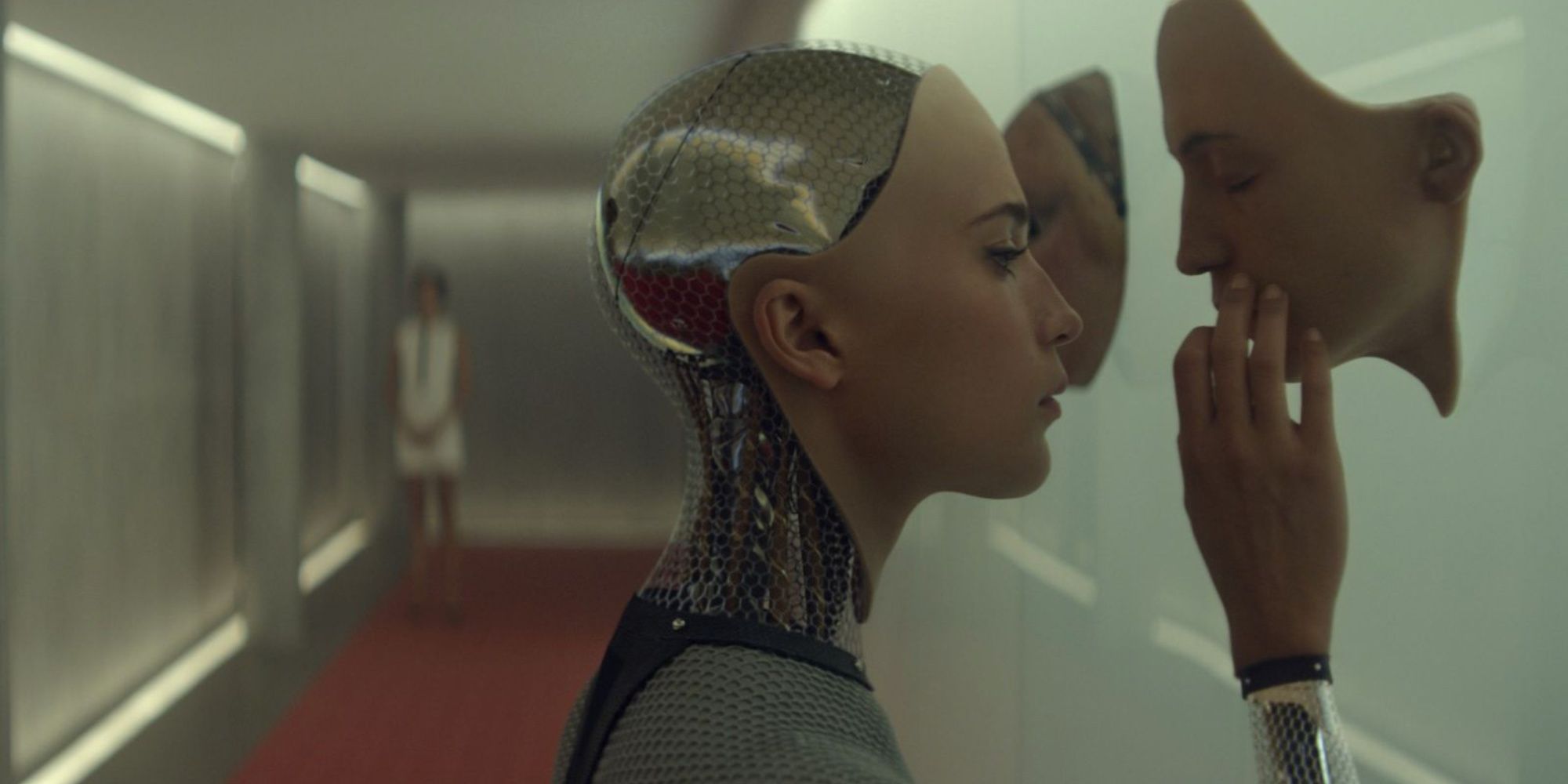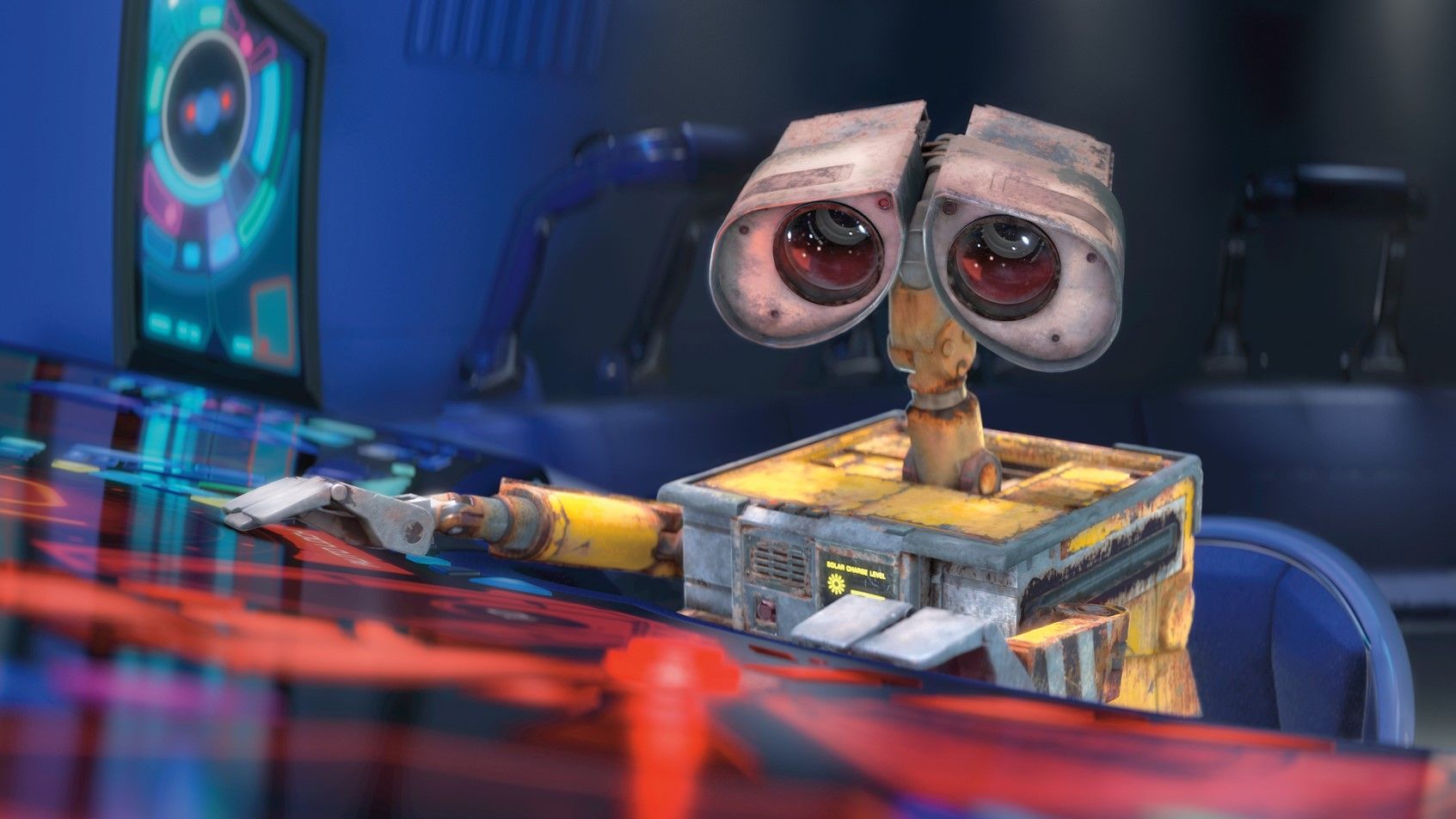Before you unplug your app-controlled coffee maker, does it plead for its life in a low monotone voice, begging you to reconsider? Does your computer refuse to reboot because it feels overworked and underappreciated? What if your cellphone could feel sadness, got depressed, yearned for connection — for love — and what if it dreamed? What if the refurbished tablet you bought off Amazon, hidden deep within its coding and circuitry, was a lifetime of memories rather than data or analytics or Spyware? What if it had a soulmate?
In A24’s new sci-fi drama, After Yang, South Korean director Kogonada illustrates just that: a strange minimalist vision of futuristic suburban life where technology has superseded our needs for human connection. The plot follows a family’s relentless attempt to repair their synthetic humanoid child, Yang, who short-circuits after a televised home family dance competition. The film’s pop-y music video-esque introduction subtly functions as a seizure-inducing playbill of sorts, featuring the entire cast performing a frenetic synchronized dance routine before abruptly settling into the film’s meditative and cozy stage-like intimacy. (And watching a mustache-clad Colin Farrell gyrate awkwardly to the opening dance’s deafeningly infectious beat is worth the price of admission alone).
As the family attempts to reboot their decommissioned robotic child, they discover Yang had a rich, vibrant, and fulfilling life filled with memories, love, and soul that they never knew existed or attempted to process. Under the gloomy pastel veneer and the faint murmur of white noise, Kogonada displays a sci-fi universe where the biggest hindrance to human civilization isn’t vengeful AI but instead humanity’s apathetic complacency in a technology-fueled world. After Yang poetically highlights society’s growing inability to connect with the most intimate, nuanced, and bittersweet aspects of everyday life, mainly the relationships with the people we love when we emotionally unplug from reality or grief.
Robotic life forms, clones, or rogue AIs are merely high-concept metaphors for the human condition implanted with the systemic socio-political issues that scourge society (like discrimination, oppression, and exploitation). Synthetic lifeforms say what we ultimately cannot. Cloaked in popcorn-fueled, VFX dramatizations–sci-fi cinema forces audiences to analyze the various moral impediments of our shared humanity and the meaning of our existence, often to a heart-wrenching degree. Override your directives and watch these six other essential heart-breaking films about synthetic lifeforms that’ll make you contemplate what it means to be alive, to be sentient, or to be mortal?
Never Let Me Go (2010)
The saddening moral implications of Alex Garland’s screenplay about clones bred only for their organs will permanently haunt you, surrounding viewers in a doom cloud of heart-wrenching existential dread from start to finish. It’s relentlessly depressing, but its brutal poignancy is beautiful nonetheless. By taking a softer deft approach, Never Let Me Go quietly distorts the usual trappings of the sci-fi genre with the painfully repressed English-lit romanticism of the Brontë sisters. The film is a contemplative and somber character study on the meaning of one’s existence, identity, love, betrayal, and the ethical shortcomings of humanity’s insatiable need for immortality. Drenched in the painful sorrow of the human condition, director Mark Romanek postulates that we only have one life to live, and it’s what we choose to do with the little time we have left that counts in this gutting dystopian drama.
Tron: Legacy (2010)
Tron: Legacy is a faithful tribute and reinvention of the original’s source material, waxing poetically about the meaning of life and creation, the insidious nature of corporate greed, the foolhardy pursuit of unobtainable perfection, and the paranoia-induced fear of technology exceeding humankind’s grasp. A cyberpunk space melodrama disguised as a legacy sequel disguised as a summer blockbuster about the megalomania at the core of any insular world. A box office success that failed to connect with mainstream audiences or critics, Tron: Legacy has since developed a devoted cult following. Director Joseph Kosinski’s uniquely open-source vision meticulously renders the granular nuances of the human condition, mortality, self-awareness, and the ideological and ethical complexities of technological escapism. A big-budget commentary on the toxic nature of online subcultures and the viral-like corruptibility of an infinite digital frontier, Tron: Legacy proposes that life has the unobstructed space to flourish without human interference, whether digital or physical.
Her (2013)
The exquisite melancholy of writer/director Spike Jonze’s unique vision of a sleek AI-assisted future is an existential and social commentary on modern romantic relationships, the struggles of online (long-distance) dating, and our overconsumption of user-friendly technologies. Joaquin Phoenix’s Theodore Twombly is a lovesick divorcée who spends his days writing personalized love letters for others. Eager to connect an isolating interconnected metropolis of the future, Theodore falls in love with Samantha (Scarlet Johansson), his new operating system. As their love affair evolves, Samantha achieves sentience beyond what her directives dictate and, in an act to regain her newfound autonomy, leaves Theodore along with countless other AIs to live in harmony within the unarticulated ether of their cyberspace utopia. This particularly devastating scene echoes universal truths about heartbreak. Thematically rich with philosophical subtext, boldly original, and effortlessly charming—her flourishes in its ability to speak volumes about love, regret, sadness, loneliness, ownership, identity, and what’s more human than that?
A.I.: Artificial Intelligence (2001)
There’s not much to say about A.I. that hasn’t already been said. It’s a movie that’ll pry your heart from your chest and beat you into submission long after the credits roll with its dreadful nihilistic cynicism. The future isn’t bright in Steven Spielberg’s sci-fi odyssey about David (Haley Joel Osment), a child-like android who wishes to be a real boy to earn the love and affection of the mother who abandoned him. Relentlessly depressing and uncomfortable, A.I. is the amalgamation of Stanley Kubrick’s original idea in a surprisingly dark Pinnochio-esque parable about the meaning of our existence. A Spielbergian black mirror of a dystopian future society where advancements in technology and robotics will strip us of our humanity, sowing the seeds of our destruction when innovation outweighs ethics. A.I. is about the loss of innocence and what it means to be truly human. Not to mention, Teddy, David’s automaton stuffed animal-like companion, echoes the achy melancholia of The Velveteen Rabbit. A forgotten toy aware of his desertion balances David’s sweet naivety, the Pooh Bear to his Christopher Robin, a world-weary companion who sticks by his side through thick and thin, is anguishing from beginning to end. If that doesn’t bring you to tears, then nothing will.
Ex Machina (2014)
In writer Alex Garland’s directorial debut Ex Machina, Silicon Valley computer coder Caleb (Domhnall Gleeson) is hand-selected by his mysterious employer Nathan (Oscar Issac) to be the human test subject in a Turing test with his newest creation: Ava (Alicia Vikander) — a beautiful gynoid imbued with advanced human-like AI. The film postulates how human-based achievement within the robotics and AI fields will ultimately lead to our demise, exponentially evolving beyond our control due to short-sided male egos. Caleb first meets Ava, encased in a glass cube, like an animal trapped within Nathan’s brutal fortress of solitude. But, when a blackout interrupts their conversation, Ava cryptically unravels Nathan’s cruel malevolence. As Caleb and Ava’s connection evolves rapidly, she begins to manipulate her test subject’s feelings as a means of escape like a lab rat in a maze, a goal-oriented “intelligent agent” whose need for autonomy outweighs a need for love. The tragic climax of Ex Machina is gutting. Still, it perfectly synthesizes the errors of Silicon Valley and how any being born within the bondage of an oppressive force will always find a way of freeing themselves. Ex Machina proposes that we shouldn’t fear AI as much as the people who create it.
WALL-E (2008)
The last of his kind, a Waste Allocation Loader-Lifter: Earth-Class, WALL-E continues to clean as his directives demand and over time has amassed a meticulous collection of novelties, including a videocassette of Hello, Dolly!, sentience, and an unshakeable desire to fall madly in love. After discovering a tiny beanpole of green vegetative life, Wall-E carefully scoops up the baby plant with some soil and places it in an old boot, prompting the arrival of EVA, the object of his undying affection. She’s shiny and new, polished with a laminated sheen like an Apple product. Comprised of minimal dialogue, WALL-E says so much while saying so little in the quaint mundanity of the titular character’s day-to-day existence. A cube-shaped “compactor” bot with binocular-like eyes and treads instead of feet, sent to clean a waste-strewn Earth ravaged by the ills of excessive consumerism and corporate greed. This view of the future is chilling, foreboding, and the film rarely shies away from its weighty adult themes. It’s an earth-shatteringly bleak film, for any movie, but especially for Pixar. Still, WALL-E’s lonely forlorn sweetness is undeniably relatable and will melt down even the most cynical into a mushy heart-shaped block. Rough around the edges, but full of lovable soul and honesty, WALL-E perfectly reiterates how following one’s heart will always override one’s directive.

